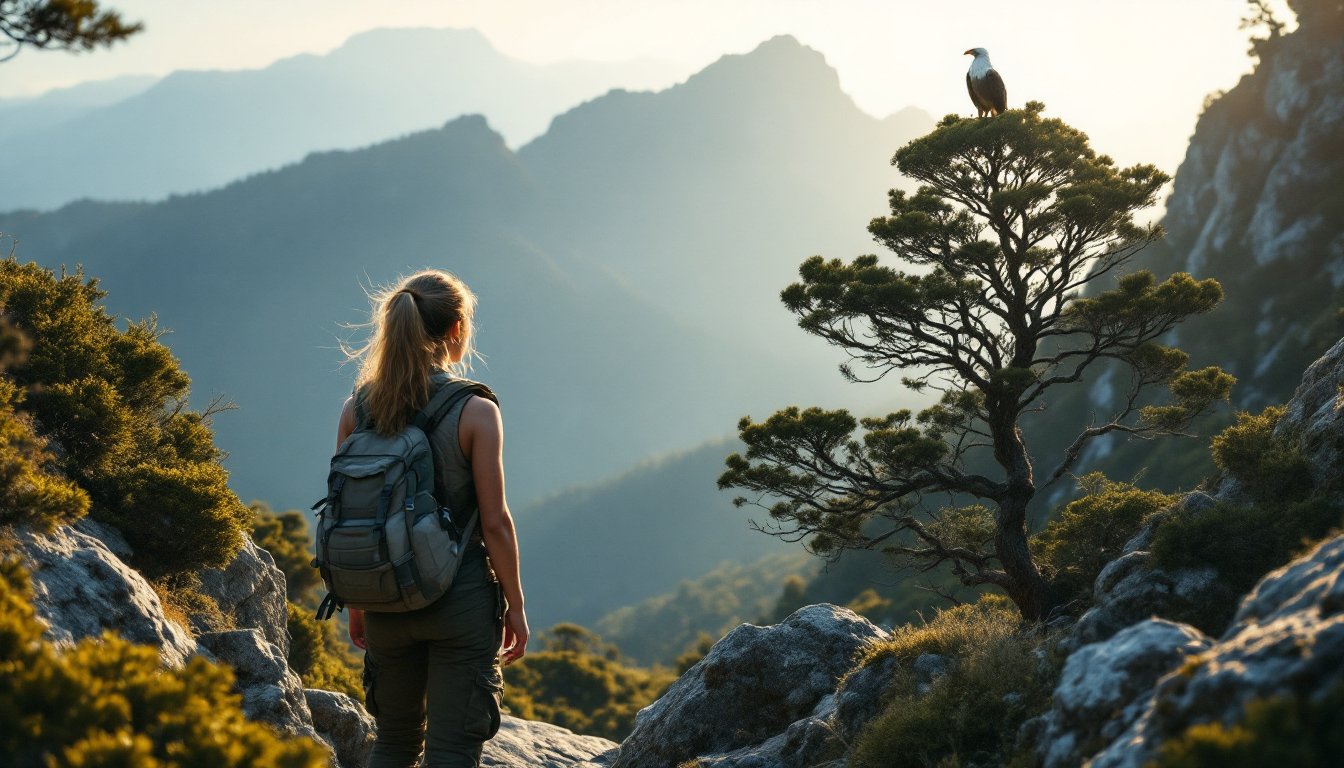Table of Contents
In the rugged terrains of Tasmania, the reality show Alone Australia presents a captivating narrative of survival and personal stories. Contestants, including a remarkable young woman named Ceilidh, confront the challenges of the untamed wilderness while sharing their intimate experiences. Ceilidh, who is deaf, observes a distant bird perched high in a tree, identifying it as a white-bellied sea eagle. This bird holds significant meaning for her, reminding her of her late father, who had a tattoo of it on his arm. She reflects on their close bond and how he supported her during her formative years, a connection disrupted by his tragic battle with leukemia.
In a poignant moment, Ceilidh expresses, “It’s like my dad is watching over me.” This touching revelation encapsulates the emotional resonance that permeates the series, as contestants strive to outlast one another in a remote and harsh environment.
Survival against the odds
Fellow contestant Tom describes the wilderness as “cold, rugged, and unforgiving.” Each participant willingly embraces the challenge, acknowledging their shared inclination for joining such an extreme competition. Originally launched in the United States a decade ago, Alone has now reached its twelfth season and has inspired adaptations across ten countries, including Australia, where it airs on SBS. The current season unfolds against the breathtaking yet brutal backdrop of the Arctic.
Real stories in an unfiltered format
Joseph Maxwell, head of unscripted programming at SBS, views the series not merely as a competition but as a documentary that weaves together the personal stories of its contestants. The unique aspect of this show lies in its raw authenticity; participants are responsible for capturing their own footage and sounds, creating a sense of intimacy and immediacy. This approach allows the audience to witness the contestants’ journeys from their own perspectives, without the influence of a production team guiding the narrative.
Maxwell emphasizes that the show captures the true essence of survival, stating, “They’re telling it, they’re choosing what to say, when to say it, they’re filming it. It’s totally unproduced, undirected.” This unfiltered experience fosters a deeper connection with viewers, who become invested in each contestant’s personal story. The show does not shy away from uncomfortable moments, such as when professional trapper Shay fills his mouth with worms. Maxwell notes that such instances are not sensationalized but rather reflect the harsh realities faced by the contestants.
The psychological toll of competition
One of the most intriguing aspects of Alone Australia is the psychological strain that contestants endure. Isolated from one another, they remain unaware of how many competitors remain in the game. This uncertainty plays a crucial role in their experience, as they are forced to confront their inner demons while battling the elements. For many, the competition transcends mere survival; it becomes a deeply personal journey of self-discovery.
Nature as a companion
In addition to the psychological challenges, contestants form unexpected bonds with local wildlife. The Tasmanian wilderness is not merely a backdrop; it plays an integral role in the narrative. For example, one participant developed a unique friendship with a quoll, a lesser-known carnivorous marsupial. This quirky creature often sneaked into her camp, stealing bits of jerky and curling up beside her at night. Such interactions illustrate the unpredictable and often delightful moments that punctuate the harshness of survival.
As the show progresses, it continues to captivate audiences with its blend of heartfelt storytelling and survival drama. Patrick Vien, managing director at A+E Global Media, asserts that there is nothing quite like Alone. The series merges the authenticity of a documentary style with the competitive spirit of a reality show, creating a palpable sense of realism that resonates with viewers. The raw, personal footage shot by the contestants themselves enhances the emotional weight of their stories, allowing audiences to empathize with the isolation and challenges they face.
Ultimately, Alone Australia distinguishes itself in the realm of reality television by prioritizing genuine experiences over dramatized narratives. The essence of the show lies in its ability to showcase not only the survival skills necessary to endure in the wild but also the profound personal transformations that occur in the process. It emphasizes that true competition exists not just against fellow contestants but against oneself, making for a compelling viewing experience.


